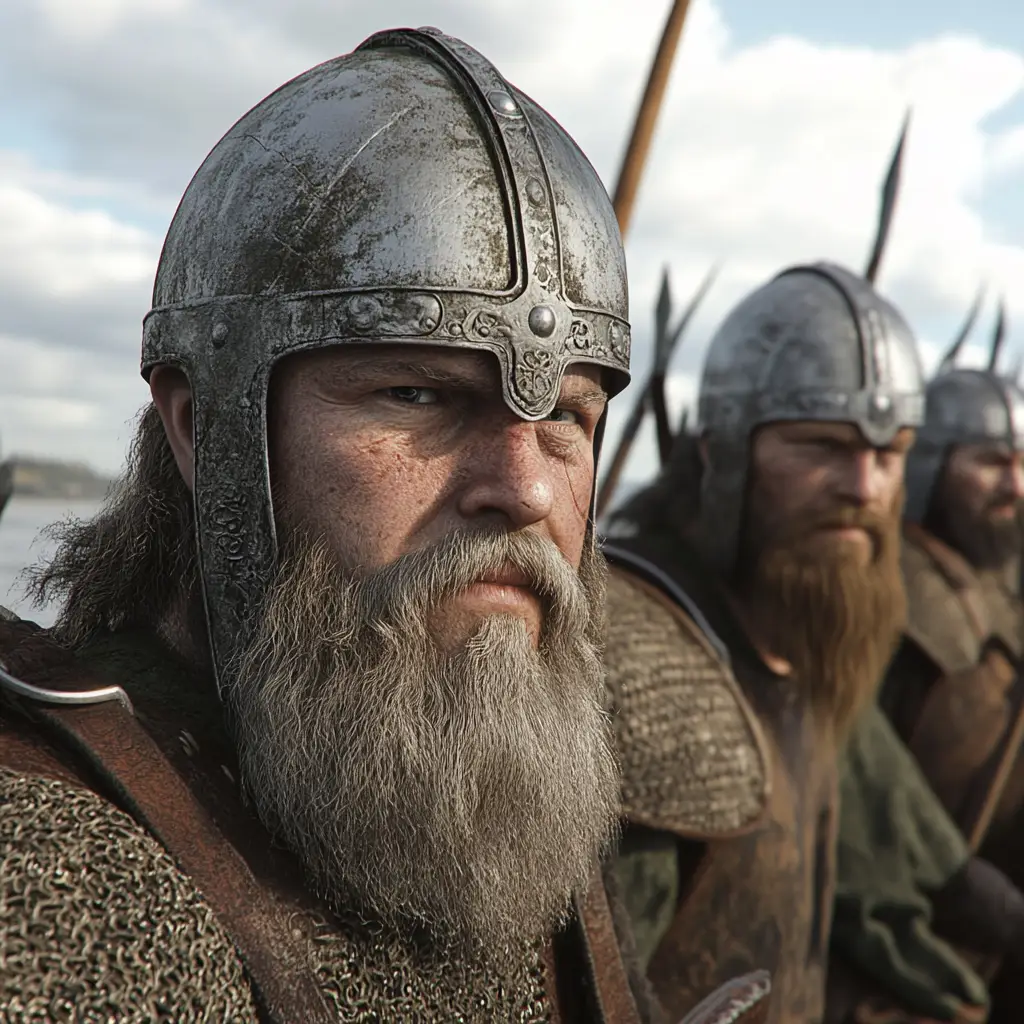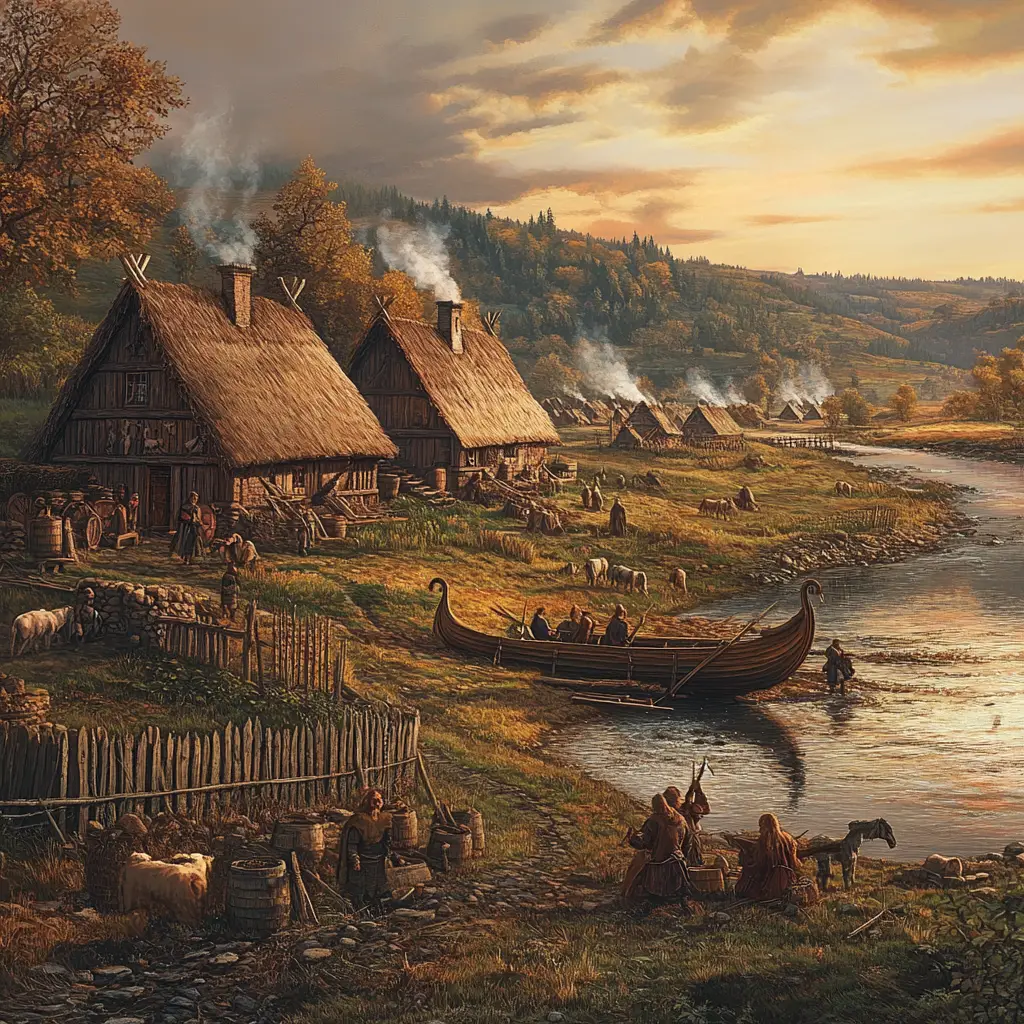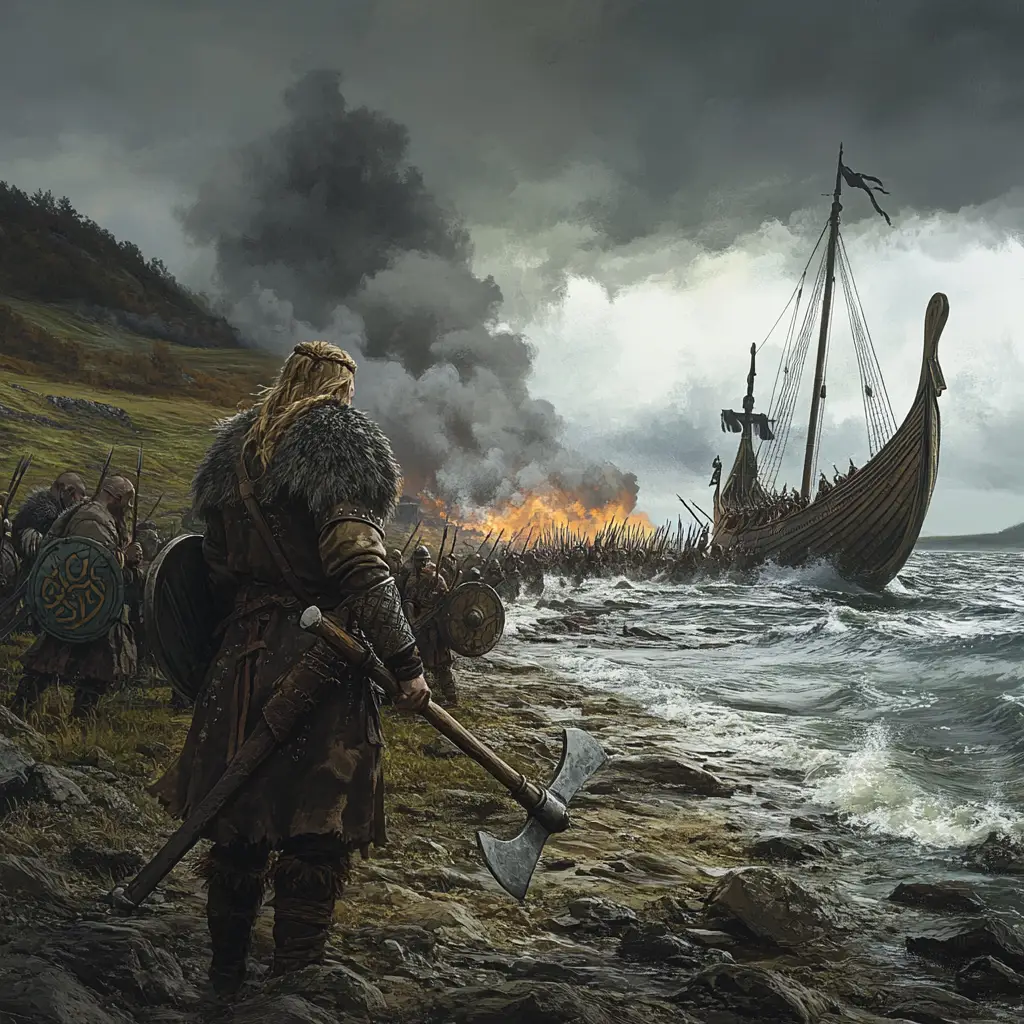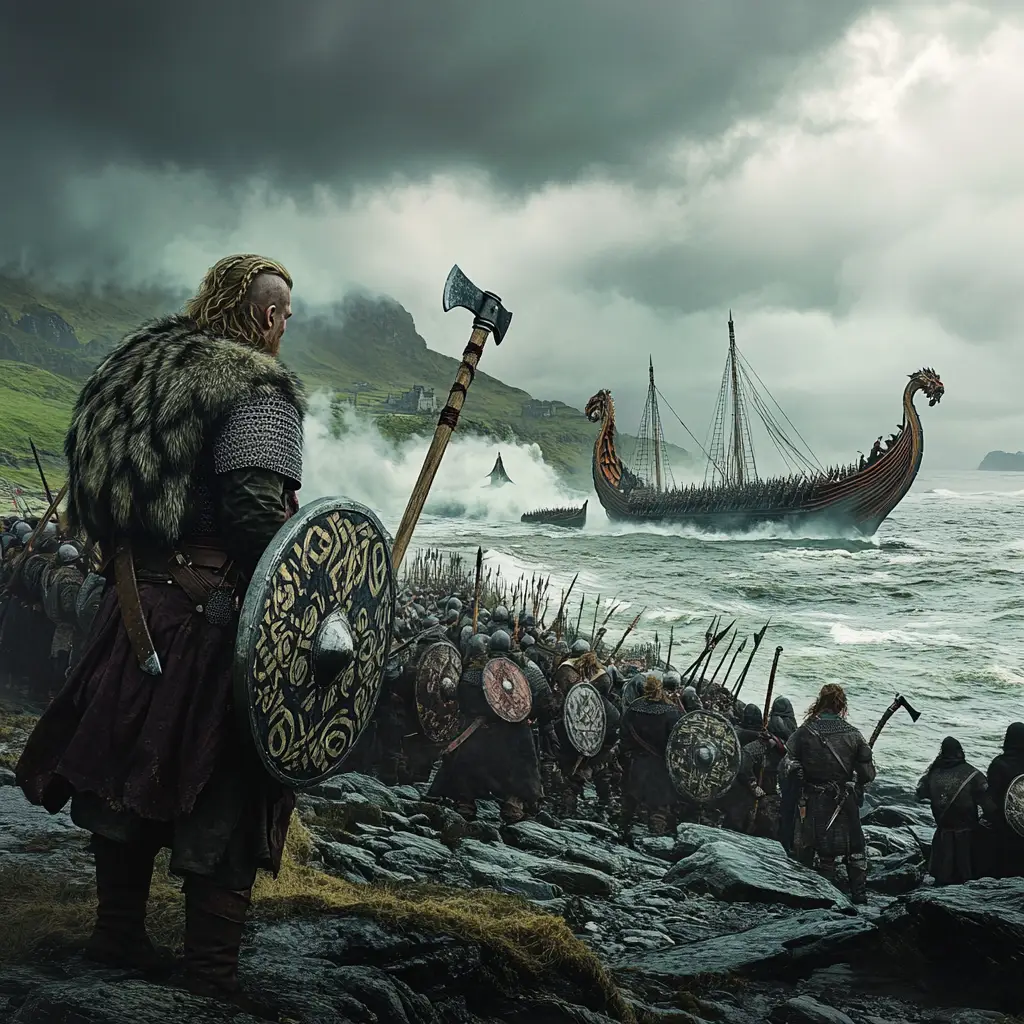The Vikings had a profound impact on England during their era of raids, settlements, and eventual integration. Their interactions with England spanned several centuries, beginning with violent incursions and evolving into significant cultural and political influence.
The Viking Presence in England
Raiding and Early Encounters (793–850 CE)
The Viking Age in England began with the raid on Lindisfarne in 793 CE, a shocking and brutal attack on a prominent monastery that marked the start of Viking incursions.
Vikings primarily targeted monasteries and coastal settlements for their wealth and lack of defence, spreading fear across Anglo-Saxon England.
The Great Heathen Army (865–878 CE)
A large force of Viking warriors, referred to as the Great Heathen Army, invaded England under leaders like Ivar the Boneless, Halfdan, and Ubba.
They sought more than plunder—conquering and settling in Anglo-Saxon kingdoms such as Northumbria, East Anglia, and parts of Mercia.
King Alfred the Great of Wessex successfully resisted Viking domination, defeating them at the Battle of Edington in 878 and securing a peace agreement that established the Danelaw, an area of Viking control.
The Danelaw (9th–10th Century)
The Danelaw encompassed parts of northern and eastern England, including modern-day Yorkshire, East Midlands, and East Anglia.
Here, Viking settlers influenced local law, language, and culture. Many place names in England today (e.g., those ending in “-by” or “-thorpe”) reflect their Norse origins.
Viking Integration and Rule (10th–11th Century)
Norse leaders like Eric Bloodaxe ruled over York and other parts of England, blending Viking and Anglo-Saxon traditions.
By the early 11th century, England experienced direct Viking rule under King Sweyn Forkbeard and his son Cnut the Great, who became King of England in 1016 and united it with Denmark and Norway in the North Sea Empire.
The End of the Viking Age in England (1066)
The Viking Age in England effectively ended with the Battle of Stamford Bridge in 1066, where King Harold Godwinson defeated the Norwegian king Harald Hardrada.
This victory was short-lived, as Harold fell shortly after at the Battle of Hastings, marking the beginning of Norman rule.
Viking Influence on England
Language:
Many Old Norse words entered the English language, particularly in areas of the Danelaw (e.g., “sky,” “window,” and “knife”).
Place Names:
Norse place names are widespread in England, indicating Viking settlement.
Legal Systems:
The laws and governance of the Danelaw influenced the development of English law.
Culture and Society:
Viking warriors, traders, and farmers contributed to the economy and introduced new cultural practices, including shipbuilding and craftsmanship.
Legacy:
The Viking era left an enduring mark on England, shaping its language, culture, and historical identity. Today, Viking history is celebrated and studied as a key chapter in England’s story, exemplifying the complex interactions between invaders, settlers, and native populations.



